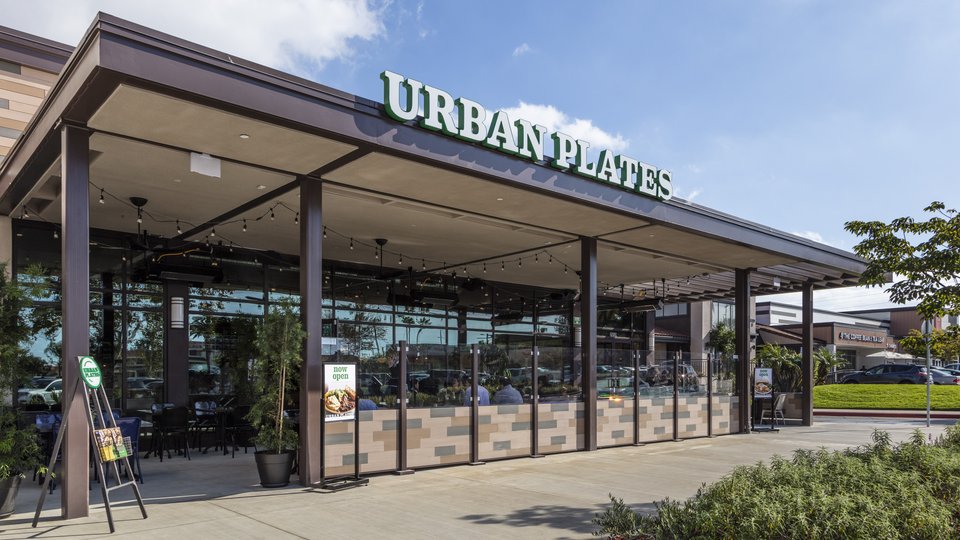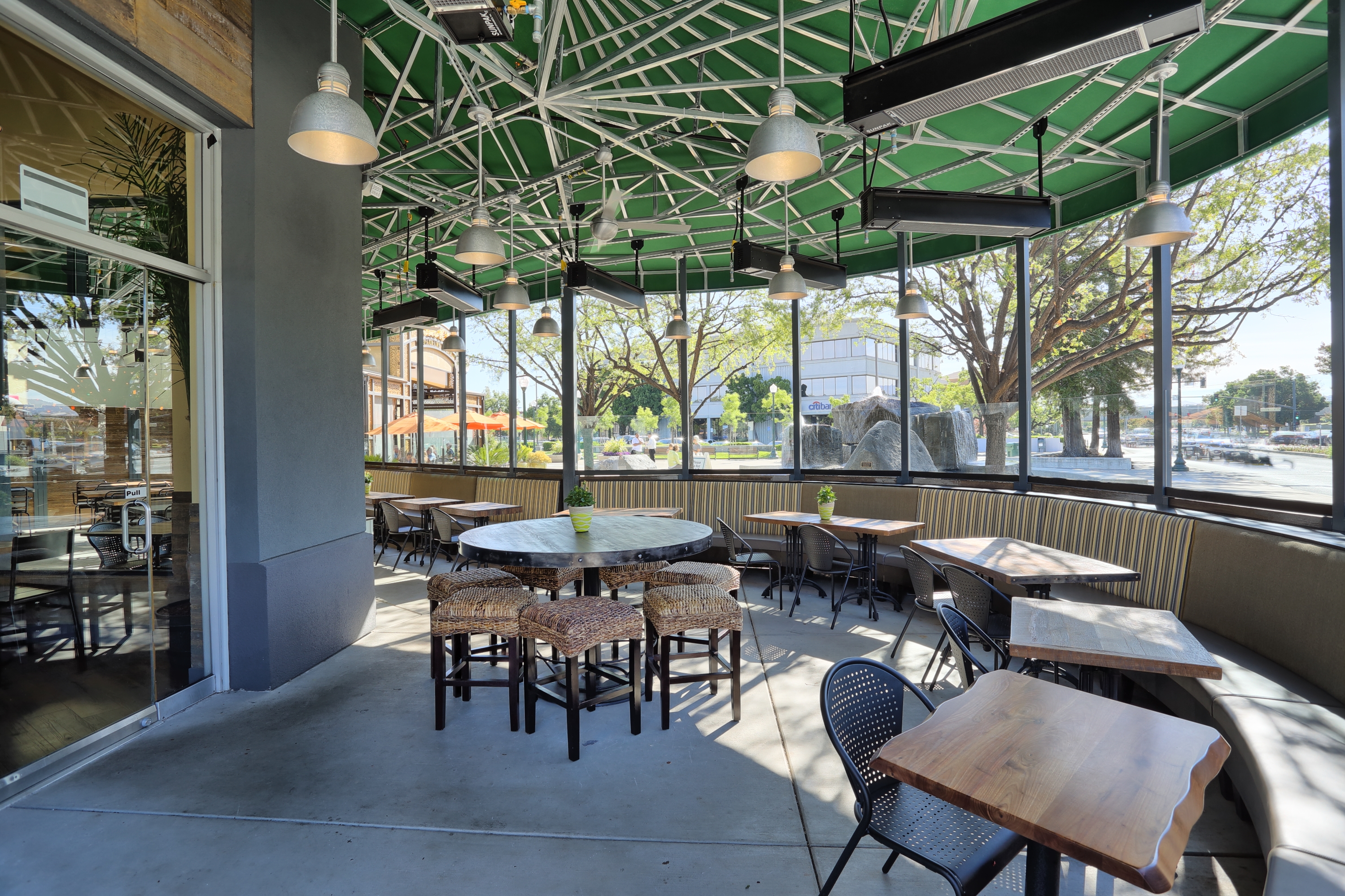A View From The Top
How Urban Plates negotiated for more outdoor space
John Zagara, the co-founder of Urban Plates, reveals how he secured more space from his landlords to expand patios at 10 of his locations amid COVID-19.

September 9, 2020
 |
| The patio at Urban Plates in Long Beach incorporates wood fences, natural elements like flowers and trees. Provided |
By John Zagara, co-founder of Urban Plates, a 19-unit chain based in California
As with all businesses in our industry, and outside it, it was apparent early on in this health crisis that the way things had been done before was going to need a revision — and that they were going to need it quickly.
I think a real success for us has been our ability to move quickly and efficiently to gather information, understand what needs to shift and then agree to action. We quickly pivoted to offer contactless curbside and express pickup options as well as family meals. Despite the pains associated with third-party apps, we grew our delivery options to include UberEats and Postmates. We were also quick to require team members and guests to wear masks, even before local governments mandated it. And now, with indoor dining closed and no real timeline as to when it might reopen, it's about getting creative — and moving fast — when it comes to outdoor space.
While costly (just like investments in PPE, safety seals, or reconfiguring our registers to provide protective barriers), we knew it was a necessary investment to expand our patios. And not surprisingly, we've since found that even at locations where indoor dining is allowed, the outdoor space is still most in demand.
Negotiating for more space
Although all of our locations already had outdoor patios, we expanded 10 as of mid-August. Some locations did multiple expansions, i.e. sidewalk plus parking spots, which made up the majority of our expansions. For two of our patios, however, we secured space that had previously belonged to two F&B businesses that were forced to close after the pandemic hit.
Negotiating for more space starts with reaching out to the landlord to find common ground on a solution. If a restauranteur would like to expand outdoor space, they should approach their landlord if they notice it and ask to use it. Landlords want their tenants to be viable and paying rent, so you must start brainstorming possibilities, doing the groundwork with local authorities on things like permits and permission, and being clear about roles and responsibilities for getting it done.
When looking to negotiate patio expansions, how you approach your landlord is the most important factor. We think of our landlords as partners — if we do well, they do well and vice versa. When we decided to expand our patios, we approached our landlords with kindness (something inherent to the Urban Plates ethos), with facts and numbers. We shared positive data around sales increases at other Urban Plates locations. We shared our belief — and substantiating trends — that customers who come for Urban Plates were quite likely to stay and shop at other retailers. Most landlords understand and are doing whatever they can to accommodate us within reason; we meet each other halfway.

It may seem like a no brainer, but you've got to make the process as easy as possible for your landlord. A landlord's first thoughts are "How much money?" and "How long will this take?." So, we make the process seamless.
Step 1: First, we go to the city and secure the necessary permits and fire/safety approvals. We minimize the landlord's liability by guaranteeing that everything we present to them has already been approved and is within city code. Think through what problems could potentially arise and come prepared with a solution.
Unfortunately, there are a lot of vacancies right now, so expanding into parking spaces (and sometimes other recently closed business patios nearby) is something to consider. It's a terrible reality to see a peer in that position, but if utilizing this unused space can help another business survive — maybe even thrive — it's in everyone's interest.
Step 2: Once the expansion has been negotiated, our priority is to provide guests with an experience that is just as satisfying as it was before. In most cases, we're working with just a few parking spaces. We had to ask ourselves what it would take to make the guest experience the best that it can be. Instead of offering the bare minimum — concrete barriers and tables — we are making it more private and comfortable.
We incorporated wood fences, natural elements like flowers and trees, shade sails where available, vertical flame heaters, string lights, music, and indoor/outdoor turf and carpeting. We are fortunate to have many locations in sunny Southern California, where we can bring our indoor furniture outside, which minimizes costs.
We are thrilled to continue to offer wholesome, clean food at an affordable price, during a time when nutrition and health is so critically important. We don't know how long this will continue, so expanding our patios is one of the best investments we can make right now. And so far, it's paying off. Our guests are commenting on the inviting design and comfort of these patios showing us that attention to detail matters. Many of our customers have been looking forward to eating out for months, and we hope this provides a wonderful and enjoyable experience for them during such difficult times.












